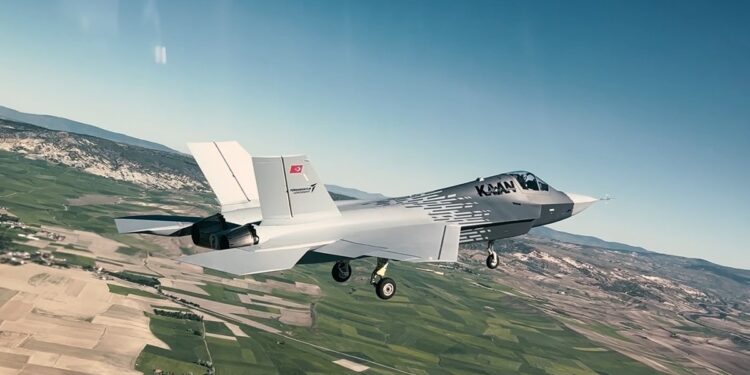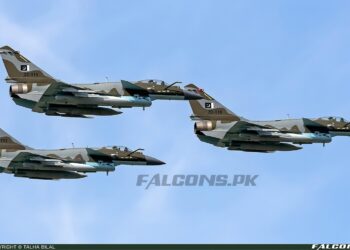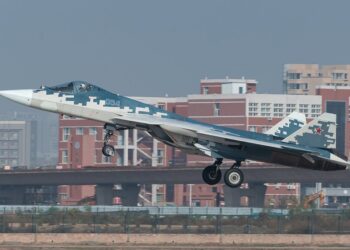By Peter Felstead
The Turkish Aerospace KAAN fifth-generation combat aircraft – the country’s first indigenously developed jet fighter, also known as the National Combat Aircraft – completed its second flight test on 6 May 2024, the Turkish Defence Industry Agency (SSB) reported the same day.
The aircraft achieved a speed of 230 kts (426 km/h) and reached an altitude of 10,000 ft (3,048 m) during a 14-munite flight out of Turkish Aerospace’s production facilities near Ankara. This was a similar speed to that achieved during the KAAN’s maiden flight, in a flight lasting a minute longer, but achieved a 2,000 ft higher altitude compared to the first flight.
Hailing the event as “another important day in Turkish aviation history and Turkish defence history”, SSB President Haluk Görgün said it “was a very successful flight, just like the first flight. The data received on this flight will be evaluated by the entire team and preparations will continue for subsequent flights.”
The KAAN conducted its maiden flight on 21 February 2024 after production activities were initiated in March 2022. The aircraft’s first engine start-up activity was carried out on 12 February 2023, with the first slow taxi tests occurring on 17 March 2023.
In terms of its ultimate performance the KAAN is expected to have a maximum cruising speed of Mach 1.8, a ceiling of 55,000 ft and g limits of +9/-3.5 g.
Built to incorporate stealth characteristics, the KAAN will have a low radar cross-section (RCS), a supercruise capability and will be able carry weapons internally to minimise its RCS.
Although indigenously designed and built, the KAAN prototype is currently powered by two US-sourced General Electric F110-GE-129 turbofans each delivering a thrust of 131.2 kN on full afterburner. Subsequent prototypes will also be powered by F110 engines.
On 2 July 2022 the SSB published an invitation to tender for the domestic development of a powerplant for the KAAN. This was expected to be addressed by the Turkish Air Engine Company (TAEC): a joint venture between Turkey’s Kale Group and the UK’s Rolls-Royce. However, it remains unclear whether intellectual property issues over the joint venture, related to the production of the Kaan’s powerplant in Turkey, have been resolved.






